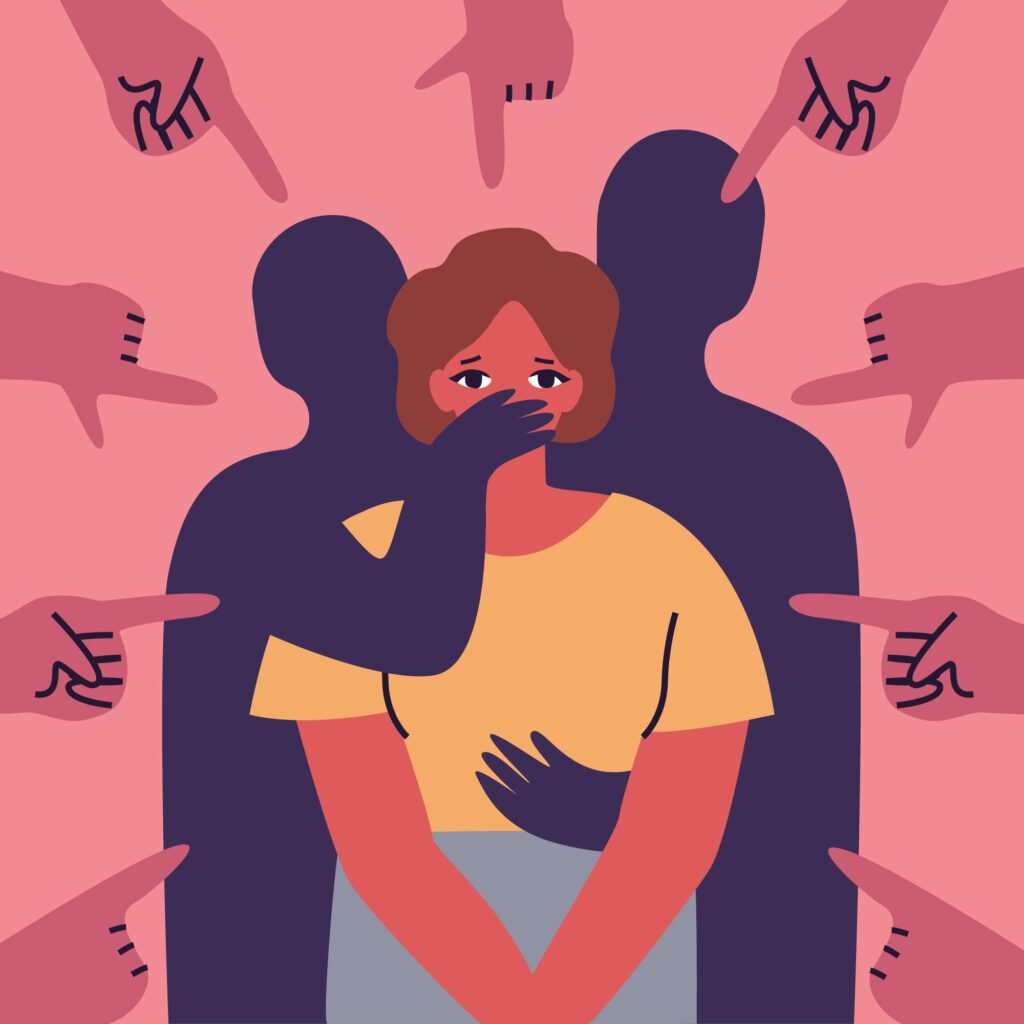Like many other nations, Pakistan struggles with the widespread problem of victim-blaming, especially when it comes to instances of female harassment. The victim-blaming mindset, which is regrettably prevalent in many facets of Pakistani culture, continues to be a major obstacle to resolving gender-based violence and bringing justice to the survivors.
What Is Victim Blaming?
Victim blaming is a phenomena in which the offender or harassed party holds the victim partially or totally accountable for the situation. This transfer of responsibility from the offender to the victim has its roots in deeply set social and cultural standards, which are frequently reinforced by prejudice and stereotypes in society.

Female harassment is a widespread problem in Pakistan and includes a variety of actions, such as catcalling, stalking, physical violence, and cyberbullying. In many instances, society has a propensity to criticise the victims’ choices and actions rather than holding the offenders accountable. This profoundly ingrained victim-blaming culture keeps women from coming forward and demanding justice.
Modesty Culture: Pakistan has a rigid modesty rule that puts the onus on women to be safe from harassment. Instead of making harassers responsible for their conduct, this society criticizes women for not dressing and acting in a manner that is considered conservative.
Fear of Reporting: Many female victims of harassment choose not to speak up out of fear of being held accountable. They fret about their reputation, the possible repercussions of reporting, and the probable dearth of assistance.
Cultural Stereotypes: Victim-blaming is frequently caused by stereotypes regarding the place of women in society and the idea that they must be shielded from harm. When they experience harassment, women who defy these norms or participate in unorthodox activities could be subject to harsher judgement.
Lack of Legal and Institutional Support: Women are less likely to report harassment due to the weak legal system and lack of trust in the justice system. Victims frequently experience helplessness and isolation in the lack of adequate legal protection.

It is a challenging and varied undertaking to address victim-blaming in Pakistan, particularly in situations of female harassment. There are, nevertheless, actions that may be made to encourage change:
Public Awareness and Education: It is essential to spread knowledge and educate the public about the negative effects of victim-blaming. The goals of campaigns, workshops, and seminars should be to promote empathy, challenge stereotypes, and change attitudes.
Legal Reforms: To further safeguard harassment victims, stricter regulations and legal reforms have to be put into place. To entice survivors to come forward, the reporting procedure must be improved and made more private.
Support Systems: To assist victims in their rehabilitation and legal pursuit, it is essential to establish greater support networks, including crisis helplines and counselling programmes.
Media Responsibility: The media may substantially influence society opinions. Journalists and media organizations should refrain from sensationalizing tales and instead concentrate on responsibly and victim-free reporting of harassment instances.
Role of Men and Community Leaders: Men and local leaders must take a proactive role in efforts to combat victim-blaming. They may act as role models and champions for gender equality, encouraging a respect for all people, in society.
In Pakistan, victim-blaming continues to be a serious barrier to tackling female harassment. A multidimensional strategy that incorporates education, legislative change, support networks, responsible media coverage, and active participation from every member of society is needed to overcome this deeply ingrained cultural norm. Pakistan can only expect to give women a safer and more just environment free from the endemic victim-blaming culture when it recognises and combats this damaging practise.



















